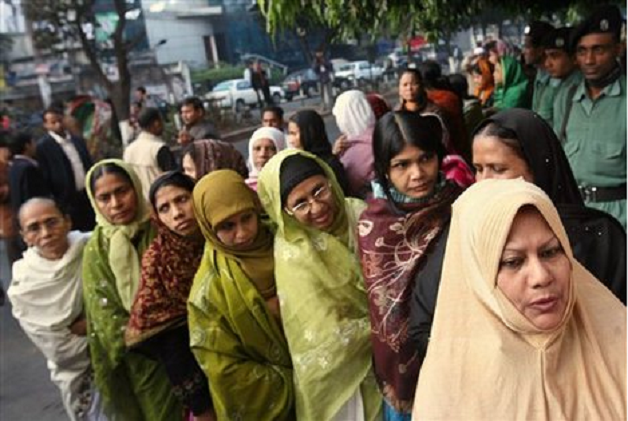"Bangladesh, women and the distribution of inherited property"
July 25Inheritance is not only a matter of human rights, it adversely affects women’s economic and financial conditions. However the Bangladeshi government is failing to address the issue in national policy, writes Mehzabin Ahmed, a 27-year-old Commonwealth Correspondent from Dhaka.
Recently there was much hullabaloo in Bangladesh about the National Women Development Policy 2011, which supposedly would change the status of women’s inheritance.
Unfortunately, on closer inspection, it sadly does not say anything about the equal distribution of inherited property.
While Bangladesh is a signatory to the Convention on the Elimination of All Forms of Discrimination against Women (CEDAW), it has reservations on Article 13 (a) of the convention which grants equality to women regarding the right to family inheritance.
In Bangladesh, inheritance is governed by a person’s religion, which has left much of the inheritance process of women unequal and discriminatory. This has raised the need for a uniform and secular family code to deal not only with the inheritance issue, but with issues such as marriage, divorce, and guardianship as well.
A comparative analysis of a few crucial current women’s inheritance rights laws in Bangladesh is presented below:
In Bangladesh, under Islamic law, the wife inherits a fixed share of one-eighth of the deceased husband’s property if he leaves children, whereas the husband receives one fourth of his deceased wife’s property. If he does not leave any children, then the wife inherits a quarter of the husband’s estate. A daughter, who is an only child, inherits half the estate of her late father or mother. If there is more than one daughter and no son, then the daughters jointly inherit two-thirds of the estate. However, if there is a son, then the daughter’s share will be equal to half of the son’s share. In all cases, men inherit more than the women do.
Among Hindus in Bangladesh, a large number of women are also excluded from inheritance. According to Hindu law, not all daughters of a man are equally eligible to inherit. Unmarried daughters and married daughters with sons can inherit, while childless widowed daughters or daughters having no son are excluded. A Hindu woman, even if she inherits, has limited rights to her property in the form of life interest (i.e. on her death, the property reverts back to the next heir of the person she had inherited the property from). Widows inheriting properties from their husband also inherit on limited rights (i.e. life interest). The Buddhists in Bangladesh are also governed by Hindu laws.
Inheritance is not only a matter of human rights, it adversely affects women’s economic and financial conditions. The current situation in Bangladesh however makes it especially difficult for female headed households. While the constitution says that the government shall not discriminate against any citizen on grounds of religion, race, caste, sex or place of birth, it only guarantees equal rights of women with men in all spheres of the state and of public life.
This leaves women vulnerable regarding their rights in private and family life. Equal rights of women in all spheres in Bangladesh is not only a question of women’s development, it is a fundamental human right that is yet to be guaranteed by the state.
While some progressive provisions have been made by the current government towards enacting laws for women’s rights in Bangladesh, many issues are still not addressed. While the Citizenship (Amendment) Act 2009 has made amendments to the Citizenship Act 1951 to grant Bangladeshi citizenship rights to children of Bangladeshi women by descent, foreign husbands of Bangladeshi women are still not eligible for Bangladeshi citizenship, while Bangladeshi men exercise different privileges.
Concrete policy changes and amendments to the law are needed to remove this discrimination, ensure women’s equality and give them equal rights to men – through affirmative action and a secular approach.
…………………………………………………………………………………………………………………
Opinions expressed in this article are those of the author and do not necessarily represent the views of the Commonwealth Youth Programme. Articles are published in a spirit of dialogue, respect and understanding. If you disagree, why not submit a response?
To learn more about becoming a Commonwealth Correspondent please visit: http://www.yourcommonwealth.org/submit-articles/commonwealthcorrespondents/







